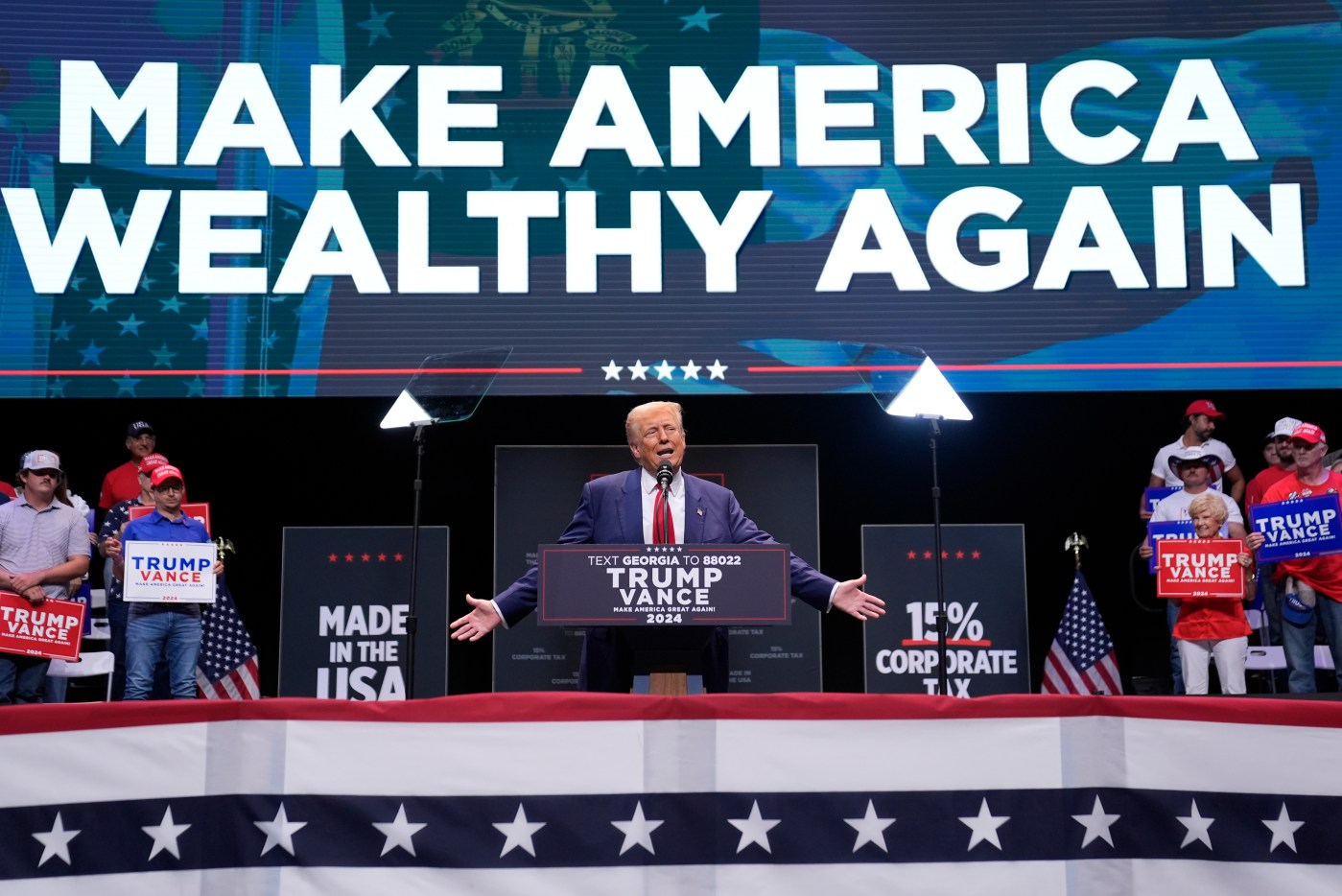
Darling: Trump has chance to pass Taxpayer First act
With Donald J. Trump coming to shake up Washington, he should focus on tax reform that makes the tax code simpler for typical Americans, removes cronyism and eliminates sneaky excise taxes. A flat-tax code that makes it easy for Americans to file taxes on a small postcard and ridding the tax code of corporate handouts would be an American taxpayer’s first tax reform idea.
The time is now to take a blowtorch to the tax code and restore sanity to tax policy to fund a limited government minus all the social engineering that litters the code today.
Congress will have an opportunity in 2025 to address the expiring provisions in the Tax Cuts and Jobs Act, the Trump tax cuts, when they pass a budget reconciliation measure. According to The Hill, “Several marginal income tax rates are set to increase in 2026 in what would be the most noticeable single aspect of the TCJA expirations.”
Instead of extending Trump’s tax cuts, a good idea would be for Trump to take the tax code and toss it in a dumpster. Why not apply a flat tax on all income levels while cutting the tax burden on citizens.
It is time to take Paul Ryan’s idea and further simplify it. Ryan, a former House speaker and congressman from Wisconsin, wanted a 14-line tax filing on a large postcard that included deductions for contributions to savings plans, mortgage interest, child tax credits, earned income tax credits, charitable contributions and higher education deductions. Those tax credits and social engineering using the tax code need to go. Tax policy should not be used to change an individual’s behavior.
A better idea for a simplified way for Americans to file taxes is to give them a postcard addressed to the Internal Revenue Service with three lines. The three disclosures that a tax filer would need to include are wages/compensation, taxes withheld, and taxes owed/refund due.
Poll test that idea, and it would be an 80/20 issue. Marry a low flat tax to Elon Musk and Vivek Ramaswamy’s DOGE Plan to reform government, and you can cut spending while reforming the tax code in one swoop.
Special interest provisions to favored corporate friends of politicians should be eliminated. An example of how the tax code has been written in a way that favors special interests is called the Rum Cover-Over. The American Distilling Institute in July 2024 had a great way of putting this crony deal as follows: “Imagine a world where the government returns half of your business taxes each year. As a bonus, the government also pays to market your product and upgrade your factory equipment. Sounds like a sweet deal, right? As it turns out, this is the deal that several of the largest rum makers in the world have.”
Only a few American rum lovers know that the Rum Cover Over takes from the poor and gives to the rich.
An excise tax on distilled spirits allows rum manufactured in Puerto Rico or the U.S. Virgin Islands to receive special treatment. The Heritage Foundation explains that “the top federal excise tax of $13.50 per proof-gallon is levied on distilled spirits. Of the federal excise tax revenue collected from rum produced in Puerto Rico, the U.S. Virgin Islands, or internationally, $13.25 per proof-gallon is transferred to the governments of Puerto Rico and the U.S. Virgin Islands.”
The way the tax provision is drafted, both Puerto Rico and the Virgin Islands are incentivized to produce more rum to get a bigger distribution of the money back to the territories. Abolishing all excise taxes on alcohol would be popular and eliminate the opportunity for a Rum Cover Over.
Another ridiculous provision that should be addressed is all the sneaky taxes imposed on commercial airline passengers. According to Airlines for America, they get hit with a 7.5% passenger ticket tax, $5 flight segment tax, passenger facility charges, $5.60 federal security surcharge, and more. They calculated that a sample trip from Peoria, Ill., to Chicago might hammer you with 22.6% tax as a percentage of your airfare. Let’s get rid of those taxes.
An American Taxpayer First policy would go with a postcard tax filing while abolishing excise taxes on alcohol and air travelers. The purpose of tax collection is to raise just enough cash to fund a very limited government.
Brian Darling is a former counsel and Senate communications director/InsideSources


